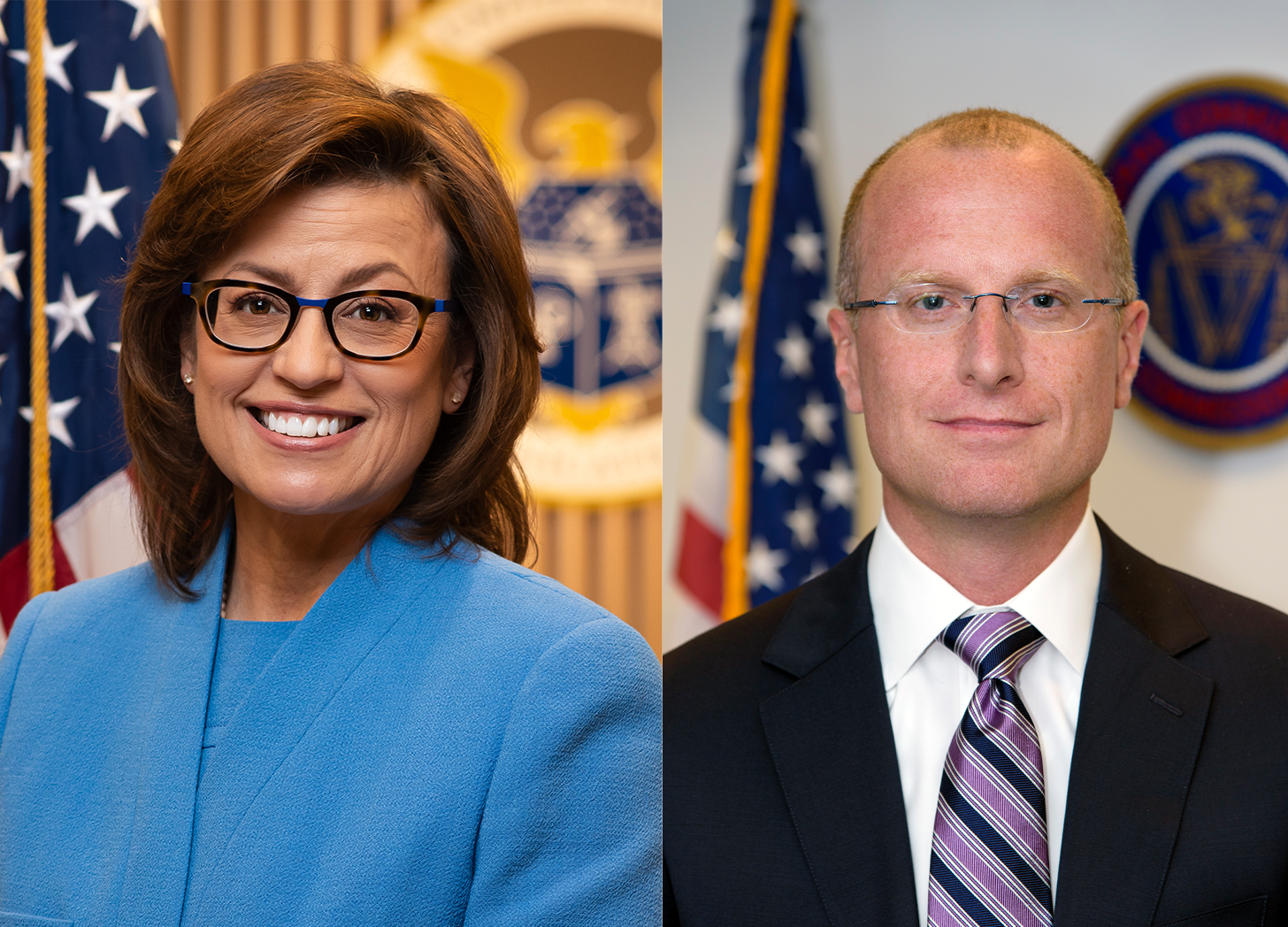FCC Commissioners, REC respond to news of Starks' upcoming departure
Chairman Carr, Commissioner Gomez and Michelle Bradley issue statements in response to today's announcement.
This morning, REC Networks was the first to break the news about the announcement by FCC Commissioner Geoffrey Starks that he will resign from the FCC later this spring.
Since this morning’s announcement, Democrat Commissioner Anna Gomez and Republican Chairman Brendan Carr issued their own statements.
In her statement, Commissioner Gomez thanked Commissioner Starks for his dedicated service to our country and his invaluable contributions to the FCC. She further said “Throughout his remarkable career in public service, Commissioner Starks has demonstrated unwavering commitment to protecting consumers and strengthening our communications networks. I wish him the very best in his future endeavors and look forward to our continued friendship.” Gomez also acknowledged his time serving in the Enforcement Bureau.
In a separate statement, Chairman Carr stated in part, “I want to express my sincere thanks and appreciation to my friend and colleague Commissioner Geoffrey Starks. He has had a tremendous run in public service. From senior leadership roles at the Department of Justice and in the Commission’s own Enforcement Bureau to serving as the Senior Democrat on the Federal Communications Commission, the American people have benefited greatly from Commissioner Starks’ public service.”
Chairman Carr continued, “Commissioner Starks led many of the FCC’s national security initiatives, and I welcomed the chance to work closely with him on important matters, including promoting new innovations, protecting consumers, and bringing families across the digital divide. Commissioner Starks put in the work and leaves an impressive legacy of accomplishments in public service. I always learned a lot from him and benefited from the many events we held together.”
Statement of REC Networks
In a separate statement, Michelle Bradley, CBT, founder of REC Networks said “Commissioner Starks was a friend to LPFM. His staff was very approachable and during my past face to face and Zoom meetings I had with them, they were very attentive to the issues. Having been an ‘internal’ appointment from his time in Enforcement, he was all ready to come on board knowing many of the issues that faced the agency, not just in broadcasting, but throughout the entire agency. Starks was a driving force in the agency’s “digital equity” initiative during the Rosenworcel administration. Commissioner Starks and his staff were very involved in the improvements made to the NCE and LPFM services in MB Dockets 19-3 and 19-193. His departure is way too soon though, as we still have a lot of work to do. He will be missed at REC. I wish him the best in whatever comes his way in the future.”
So, what happens now?
The FCC will be at three members for the first time in recent history. We would eventually have two Republicans and one Democrat. This is enough for a quorum. This is enough for any objectives that Carr wants to move forward. This includes issues that may be considered politically controversial, which would have otherwise been deadlocked by a 2-2 commission.
While the President previously nominated Olivia Trusty as the third GOP member of the Commission, there has been no real movement towards getting her confirmed.
For Starks’ seat, the President must select a Democrat. The law requires it. However, the President is not under any specific time objective to fill the seat. We note that a Commissioner seat went vacant for over two years under the Biden administration, mainly due to the controversies involving Gigi Sohn, his first choice for Commissioner, before selecting Anna Gomez.
We do not know which month he will leave the Commission. In the past, but not consistently, this normally happens right after an open meeting. The March open meeting is scheduled for March 27 with the positioning, navigation and timing proceeding as well as two 9-1-1 issues on the docket. All of these are not what we would consider controversial issues and are likely to be unanimously approved. The subsequent open meetings are scheduled for April 29, May 22 and June 26, 2025.
Currently, there are no items on circulation so we don’t know yet what may be looked at for these future agendas.
It is very likely that the President may hold off on this nomination is long as possible or at least until Olivia Trusty or another Republican is confirmed as to assure that the current administration’s communications agenda can go forward without much interruption. Democrats may pressure the White House to nominate someone, but the final decision is on the President.
To have a better understanding of how the structure of the Commission works and the other laws that directly relate to the Commissioners, see Section 154 of the Communications Act.




